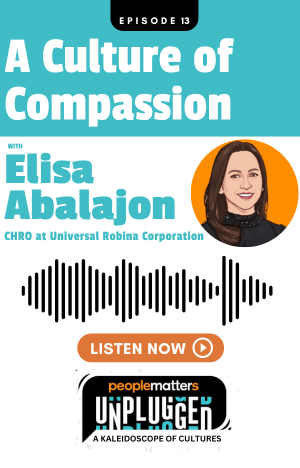Employee experience is about getting the basics right: Hmlet's Kate Williams

Kate Williams, the Head of Talent and HR at Hmlet, spent quite a few years helping growth-stage companies to recruit talent before joining Hmlet, itself a growth-stage startup, last year. People Matters asked her how she's applying her knowledge of such companies to create a positive employee experience not just during recruitment itself, but throughout the entire duration of someone's employment, and especially now that COVID-19 has changed so much about the way we work.
What does employee experience mean to you personally?
For me, employee experience is how we, as employees, feel throughout our entire work journey. It's the emotional connection and the associated behaviours. It starts with the recruitment process, leads into the onboarding, and ends with the offboarding process, and everything in between. Often we focus on the employee experience after the person has joined or even after the probation period when, in fact, it begins at the very first interaction.
What we need to do is focus on getting these basics right. For example, we've implemented an Applicant Tracking System so we can ensure we are tracking candidates throughout the interviewing process. We communicate with our new employees so they have all relevant information well before their first day. We've created and rolled out an employee handbook for each market which outlines key policies such as flexible working and remote working arrangements, processes for expenses and submitting medical claims, and key points of contact.
What do you see as the main contributing factors that let a company create a great employee experience?
For me, a key contributing factor is communication and transparency, having a good internal dialogue. I feel it's essential for employees to be able to know they can have an open and honest conversation and to know they are heard.
Working across borders with offices in Singapore, Hong Kong, Australia and Japan, and remote workers in the Philippines and Vietnam, it’s incredibly important for us to stay connected. Using tools such as Slack means we can keep our communication in one place for fast and effective communication, while segmenting through channels for our various topics and projects. It even allows us to include some lighthearted watercooler type chats through our various channels.
You've spent quite a number of years in recruitment consulting. To what extent do you find employee experience a selling factor for companies that are recruiting?
Leaders who genuinely believe in the importance of investing in employee experience (and who understand the impact it can have on the company bottom line) naturally attract the best talent. I find the most competitive companies are authentic throughout the recruitment process, and candidates appreciate raw honesty.
Now that you're in charge of talent for Hmlet, what are some ways that you're using your insights to develop and maintain a great employee experience for the team?
We are starting with the basics; establishing a strong talent and HR foundation which we can build on. For us, this means policy, process and documentation to give our people the resources they need to succeed. Laying the foundation first allows us to use technology down the track to streamline and enhance the experience.
While looking at how we create and sustain a compelling employee experience, we have the added complexity of COVID-19, and virtually overnight, we moved to 100 percent remote working. This raises questions on how to keep teams engaged and delivering while, at the same time, recognizing the need for flexibility as they juggle work with family and other responsibilities. The result is an exciting challenge for us to reinforce employee experience, so we are starting with measuring what we are doing and how. Once we can measure, we can work on improving it.
Where do you think people's expectations of employee experience will go in the future, now that the pandemic situation is changing the way we work even further?
In an office environment, it is easy to confuse happiness, cheer or excitement with engagement. But when we are remote and working in our home environment, that day-to-day engagement needs to be more meaningful.
I think personalization of experience is going to be crucial; at a department, team and individual level. With our professional and personal lives becoming more intertwined, employees will need to feel respected and recognized to be fully engaged professionally.














